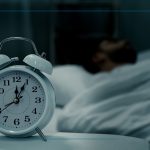Why You’re Still Tired After 8 Hours of Sleep (and What to Do About It)

Ever wondered why you wake up groggy, even after a full night in bed?
You’re not alone. Feeling tired after 8 hours of sleep is a surprisingly common complaint. While you might assume that time in bed equals rest, the truth is more nuanced. It’s not just about sleep quantity — it’s about sleep quality. In fact, inefficient or fragmented sleep can leave you feeling just as exhausted as a short night.
In this article, we’ll unpack what might be stealing your rest and explore evidence-based strategies, including Cognitive Behavioral Therapy for Insomnia (CBT-I), to help you wake up refreshed.
Sleep Quantity vs Sleep Quality
You might be spending 8 hours in bed, but how much of that time are you actually asleep? Sleep efficiency is the percentage of time spent sleeping versus time spent in bed. Ideally, it should be 85% or higher. If you’re tossing, turning, waking up frequently, or lying awake trying to fall asleep, your efficiency drops.
Signs of poor sleep efficiency include:
- Taking longer than 30 minutes to fall asleep
- Waking up multiple times throughout the night
- Waking too early and struggling to fall back asleep
- Feeling unrefreshed in the morning
In short: you might be getting 8 hours in bed, but only 5-6 hours of actual sleep.
Common Causes of Inefficient Sleep
Let’s break down some of the most common reasons you’re not getting restorative rest:
1. Fragmented Sleep
Even if you don’t fully wake up, micro-awakenings throughout the night can disrupt the deeper stages of sleep (especially REM and deep sleep), which are essential for memory, mood regulation, and energy. Causes include:
- Stress and anxiety
- Sleep disorders (like sleep apnea)
- Alcohol or caffeine close to bedtime
- A partner snoring or disruptive noise/light
2. Low Sleep Pressure
Sleep pressure is the body’s natural drive to sleep that builds throughout the day. If you nap, sleep in, or spend too much time lounging in bed, your sleep pressure drops. That makes it harder to fall asleep or stay asleep at night.
3. Disrupted Circadian Rhythm
Your body follows a 24-hour internal clock, or circadian rhythm. Inconsistent sleep-wake times, excessive screen time at night, or lack of morning sunlight can shift this rhythm and confuse your brain’s signals for sleep and wakefulness.
4. Too Much Time in Bed
It sounds counterintuitive, but spending more time in bed when you’re not sleeping can actually make sleep worse. It teaches your brain to associate your bed with wakefulness instead of rest.
How CBT-I Can Help
Cognitive Behavioral Therapy for Insomnia (CBT-I) is the gold standard treatment for chronic sleep issues. It doesn’t rely on medication and has been proven to produce lasting improvements.
Two of its most powerful tools are:
✓ Sleep Restriction
This technique temporarily limits your time in bed to match your actual sleep time, increasing sleep pressure and efficiency. As your sleep improves, your time in bed is gradually extended.
✓ Stimulus Control
This strategy retrains your brain to associate the bed with sleep only—not tossing, turning, or scrolling. Rules include:
- Go to bed only when sleepy
- Get out of bed if you can’t sleep within 20 minutes
- Use the bed only for sleep (and sex)
These methods help reset your sleep cycle and improve the quality of your rest.
What You Can Start Doing Tonight
- Wake up at the same time every day, even on weekends
- Avoid naps if you’re struggling with sleep
- Limit screen time at night, or use blue light filters
- Expose yourself to morning sunlight
- Keep your bed for sleep only
These small changes build stronger sleep pressure, reinforce your circadian rhythm, and help your body relearn how to rest efficiently.
Ready to Stop Feeling Exhausted?
If you’re tired of waking up tired, you need more than generic tips. You need structure, tools, and a plan that actually works.
That’s exactly what you’ll find in RestWell Monthly — a CBT-I-based program designed to help you sleep better, feel better, and function better. With weekly lessons, practical worksheets, and expert guidance, you’ll finally take the guesswork out of sleep.
Learn more and join today. Your energy is worth it.

Hi, this is a comment.
To get started with moderating, editing, and deleting comments, please visit the Comments screen in the dashboard.
Commenter avatars come from Gravatar.